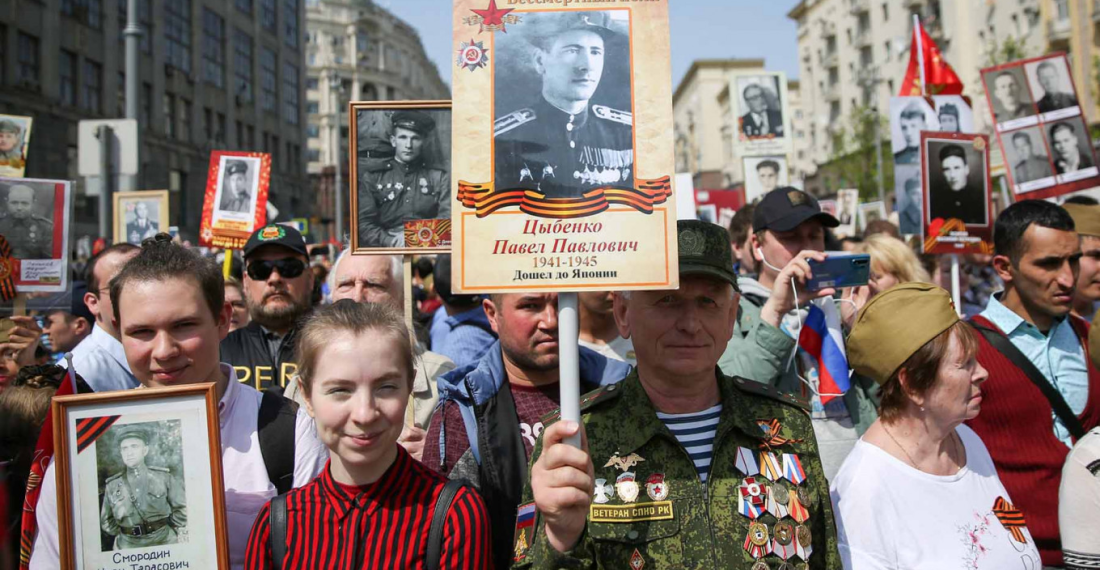A key event in Russia's annual 9 May Victory Day commemorating the Soviet Union's victory over Nazi Germany in World War II will not take place this year in Moscow, report Russian media.
The "Immortal Regiment" parade, in which ordinary Russians throughout the country parade through town and city streets holding photos of relatives who were killed during the Second World War has become a staple of Victory Day celebrations under Vladimir Putin's rule.
The event in its modern form originated in Tomsk, Siberia, in 2012, and has since grown to be conducted nationally, as well as having been conducted in many cities around the world.
The co-chairman of the Immortal Regiment of Russia movement, State Duma deputy Elena Tsunaeva, told RIA Novosti that the organisers of the parade had not filed for a permit in Moscow, saying that "in connection with security, it was decided to use the most diverse formats of the Immortal Regiment march".
Instead, according the Tsunaeva, organisers have called on Russians to enter details of relatives killed during the Second World War into an online database, and to glue their photos inside car windows and on clothes.
Victory Day celebrations cancelled across Russia
The announcement of the cancellation of the actual "Immortal Regiment" parade in Moscow comes after a string of similar Victory Day celebration cancellations in other regions of Russia.
Scheduled parades have been called off in the Kursk and Belgorod Oblasts bordering Ukraine, officially due to security concerns. Parades in occupied Crimea have also reportedly been scrapped.
Commentators are however speculating that Russia is running short of tanks and is nervous to reveal the scale of losses suffered in its botched full-scale invasion of Ukraine.






